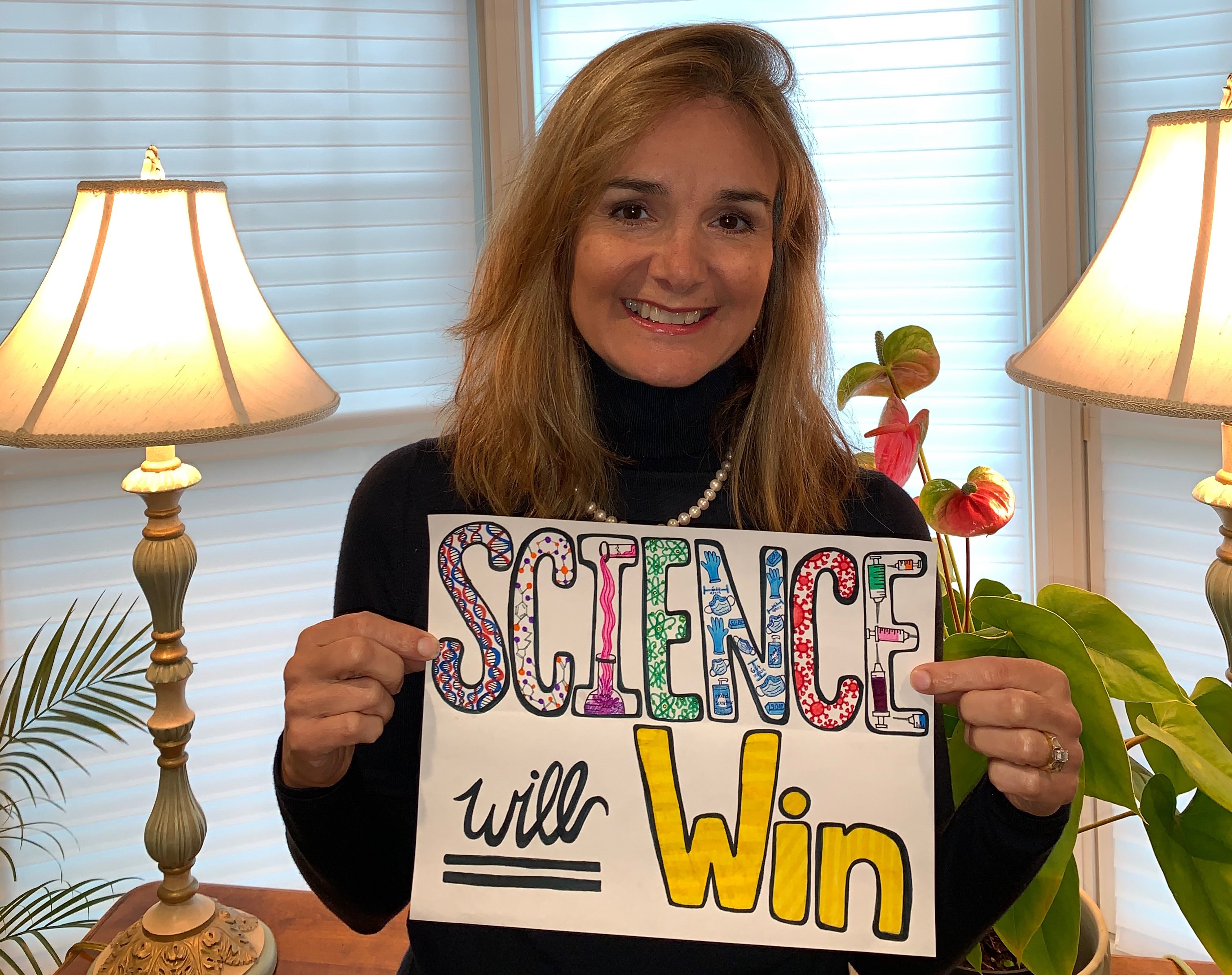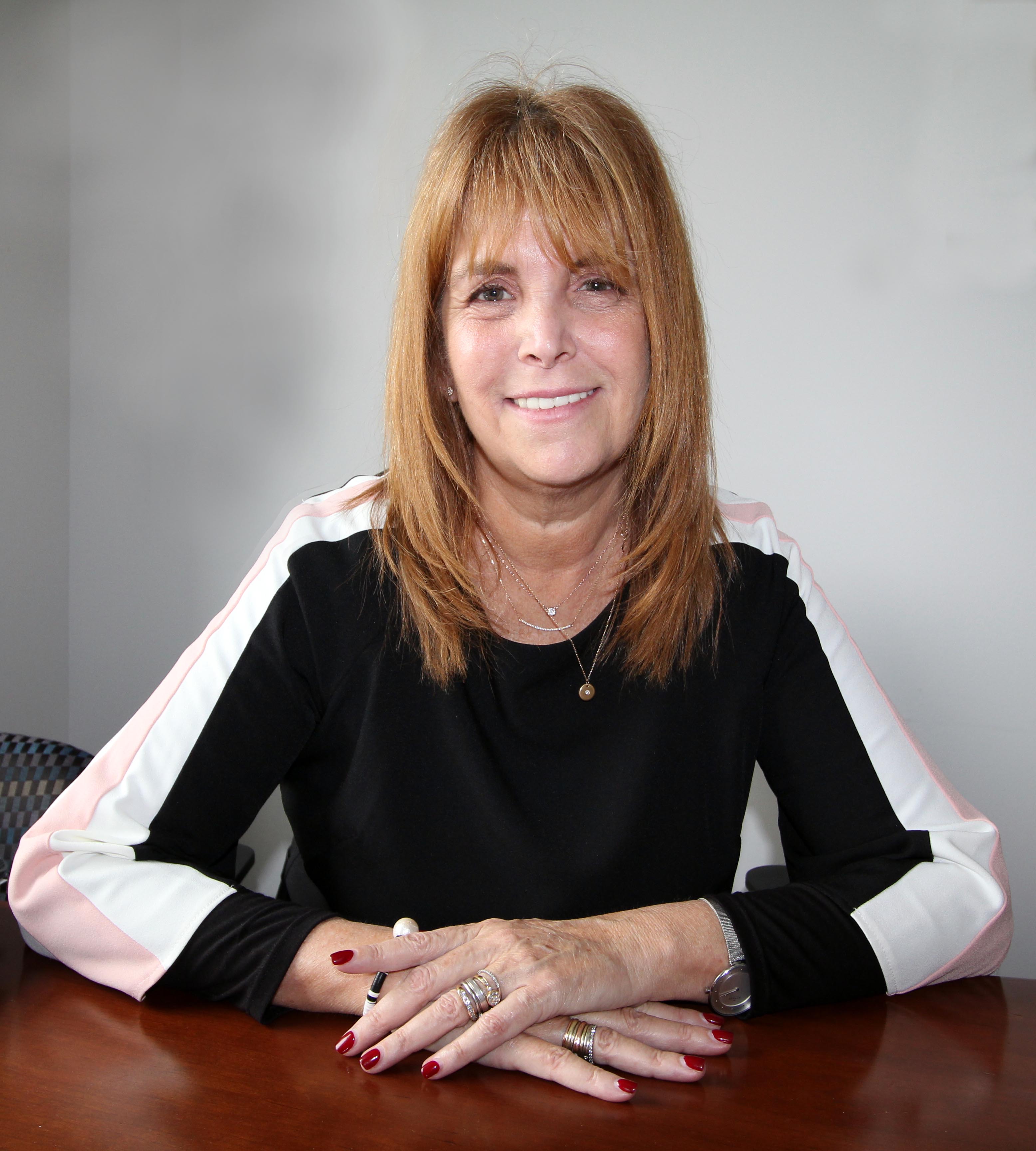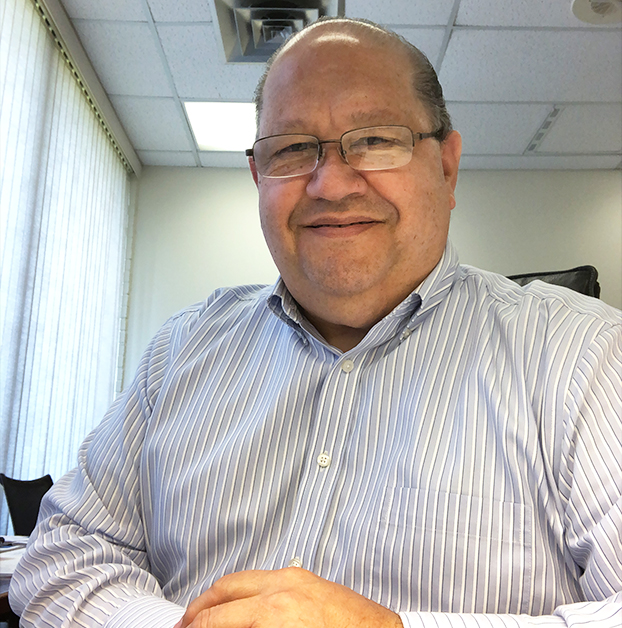Traditionally, National Hispanic Heritage Month is marked from September 15th to October 15th and honors the cultures and contributions of Hispanic and Latino Americans. In recognition of this culturally significant month, learn more about the Pfizer Latino colleagues who are making a difference in the fight against COVID-19.
At Pfizer, we believe that developing a vaccine that could decrease rates of infection, disease, and death worldwide is a critical part of addressing this global health crisis. Pfizer and BioNTech are leveraging decades of scientific expertise and working together to develop, test, and manufacture a potential mRNA vaccine to help prevent COVID-19.
As the Global President of Vaccines at Pfizer, Nanette Cocero leads a global team of more than 1,500 colleagues focused on the development and delivery of innovative vaccines that address serious and life-threatening conditions.
“When I think about the importance of delivering a vaccine to fight COVID-19, I think about my parents and helping to ensure they are protected from this devastating disease,” says Nanette. “I feel privileged to be leading the Vaccines business at such a pivotal moment – not only for Pfizer, but for the world. Today, in the face of an unprecedented global health crisis, the profound importance of vaccines to society is more evident than ever before.”
But getting vaccines to the people and communities that need them most is almost as daunting as developing one. The coronavirus pandemic has seemingly amplified the social, racial and ethnic inequities that exist in access to healthcare. According to the Centers for Disease Control and Prevention, social determinants of health have historically prevented racial and ethnic minority groups from having fair opportunities for economic, physical, and emotional health. In the Hispanic/Latino community, this includes:
- Discrimination: Discrimination in the healthcare system, including racism, can lead to chronic and toxic stress; it also highlights social and economic factors that put some people from racial and ethnic minority groups at increased risk for COVID-19.
- Healthcare access and utilization: People from underserved racial and ethnic minority groups, such as the Hispanic/Latino community, may be uninsured or underinsured. Healthcare access can also be limited for this community by many other factors, including lack of transportation, childcare, or ability to take time off of work; communication and language barriers as well as cultural differences between patients and providers.
- Occupation: People from some racial and ethnic minority groups are disproportionately represented in essential work settings such as healthcare facilities, farms, factories, grocery stores, and public transportation, thereby increasing their chances of being exposed to the virus that causes COVID-19.
- Education and income gaps: People with limited education, income and job options may have less flexibility to leave jobs that may put them at a higher risk of exposure to the virus that causes COVID-19 and often cannot afford to miss work, even if they’re sick.
Housing: For some people in the Hispanic/Latino community it is common for family members of many generations to live in one household, which may mean increased frequency of younger and older generations interacting, thereby increasing exposure to the virus that causes COVID-19 in the family/household, particularly for any individuals in the family/household with underlying conditions.
Having led Pfizer’s Emerging Markets business, with responsibility for business operations in over 100 countries across Latin America, Africa, the Middle East, and Asia, Nanette is no stranger to these health inequities and works closely with governments and others in the global health community to help ensure access to medicines and vaccines.
Similarly, for Dr. Alejandra Gurtman, Vice President of Vaccine Clinical Research and Development, the burden of COVID-19 is also personal. She pivoted her career a few years ago to focus on vaccine development and disease prevention after, she says, “many years of taking care of very sick patients.” Now, during this global pandemic, that decision has placed her at the forefront of the COVID-19 pandemic and as a catalyst for change in the Latino community.
Clinical trials are essential to developing new medicines and vaccines. However, Hispanics and Latinos are historically underrepresented as participants in clinical trials. While they account for roughly 19 percent of the U.S. population, Hispanics/Latinos make up only 1 percent of clinical trial participants on average. Alejandra and her team are working with investigators to change that by ensuring that the Hispanic/Latino community is aware of opportunities to join clinical trials.
“The goal for our COVID-19 vaccine trial is that the population fully represents the racial and ethnic diversity of the countries where we operate and the epidemiology of the disease,” Alejandra says. “As we work toward this goal, we are committed to co-creating and partnering with community partners and patient advocacy groups so that we can learn about what works best, build authentic bi-directional relationships to increase participation in this clinical trial and eliminate health disparities.”
Through partnerships with Hispanic grassroots organizations like Hispanic Federation, National Hispanic Caucus of State Legislators and Día de la Mujer Latina, for example, and other community organizations, the clinical trials team has been working to overcome language barriers and has developed patient-focused, Spanish-language materials for prospective clinical trial participants that explain what they can expect when participating in the trial. Now, with over 36,000 participants enrolled in Pfizer’s COVID-19 vaccine trial at more than 120 clinical trial sites in four countries around the world, approximately 28 percent of the study’s overall participants, and 13 percent of U.S. participants, are from Hispanic/Latino backgrounds.
But the work doesn’t end there. If the clinical trial succeeds and the vaccine candidate receives regulatory authorization approval, the goal is to supply up to 100 million doses of the vaccine by the end of 2020.
As the Vice President of Global Sterile Injectables, Ramon Frontanes oversees manufacturing of sterile injectables at Pfizer’s McPherson, Kansas and Rocky Mount, North Carolina sites. He is also the site lead for Pfizer’s Latino Community colleague resource group, where in the midst of in-person and virtual events planned to recognize Hispanic Heritage Month, Ramon is also focused on collaborating with local groups to develop solutions for people affected by COVID-19.
While these sites are not manufacturing the COVID-19 vaccine, they still play a critical role in the fight against COVID-19. As the coronavirus hospitalizations increased globally, demand for certain supportive and critical care products has increased significantly, and the Pfizer Rocky Mount and McPherson sites make over a dozen products used by hospitals in the treatment protocol for their patients with COVID-19.
“Rocky Mount is the most racially diverse site in Pfizer, so as the site lead, I take our Company’s value of Equity seriously, especially when it comes to reducing healthcare disparities and serving all patients,” says Ramon. “For me, it’s been incredible to see our essential colleagues show up day in and day out, and work hard to keep each other safe, while making medicines that our patients are counting on.With the responsibility of manufacturing COVID-19 medications, we are helping to save lives every day.”
Meet more colleagues working on solutions for COVID-19 here:
Source: Read Full Article









